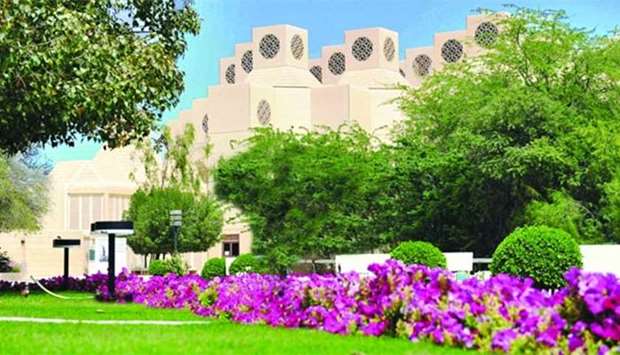The International Federation of Library Associations and Institutions (IFLA) has designed an infographic to spot fake news through eight steps, it was pointed out at session on “How to verify fake news in social media platforms”, hosted by Qatar University (QU) Library on Monday.
In her remarks, QU Library director Samia al-Shiba explained that these include considering the source of the news by investigating the site, its mission and its contact info; reading the whole story; checking the author; determining if the information given actually supports the story; checking the date of the story; researching the site and the author to be sure if the story is reliable; checking your biases; and asking the experts.
“QU Library will continue in its efforts in co-operation with faculty members to raise community awareness on the issue of fake news through awareness sessions and events,” she said.
The Library has also established a database themed "The Qatar’s Blockade" that includes the publications on the Gulf crisis by QU members.
The event was a part of a series of events and initiatives organised by QU to provide academic and scientific studies on the current Gulf crisis and to analyse the illegal blockade imposed on Qatar.
The session featured a panel discussion moderated by Prof Mohamed Kirat, Professor of Public Relations at QU College of Arts and Sciences (CAS). It included presentations by CAS Associate Professor of Mass Communication Dr Jamel Zran, Al Jazeera Centre for Studies researcher Dr Mohamed Erraji, Assistant Professor in Department of Library & Information Science (DLIS) at the Public Authority for Applied Education and Training (PAAET) Dr Husain F Ghuloum, and CAS Associate Professor of Mass Communication Dr Leon Barkho.
They discussed a wide range of issues such as “Media between the present and the past: What are the changes and the impact of social media on traditional media?”, “How to interpret fake news by presenting a sample of intellectual news and a specific case study”, “Fighting electronic rumours and fake news”, and “Fake news: Impact and ways to detect them”.
In her remarks, QU Library director Samia al-Shiba explained that these include considering the source of the news by investigating the site, its mission and its contact info; reading the whole story; checking the author; determining if the information given actually supports the story; checking the date of the story; researching the site and the author to be sure if the story is reliable; checking your biases; and asking the experts.
“QU Library will continue in its efforts in co-operation with faculty members to raise community awareness on the issue of fake news through awareness sessions and events,” she said.
The Library has also established a database themed "The Qatar’s Blockade" that includes the publications on the Gulf crisis by QU members.
The event was a part of a series of events and initiatives organised by QU to provide academic and scientific studies on the current Gulf crisis and to analyse the illegal blockade imposed on Qatar.
The session featured a panel discussion moderated by Prof Mohamed Kirat, Professor of Public Relations at QU College of Arts and Sciences (CAS). It included presentations by CAS Associate Professor of Mass Communication Dr Jamel Zran, Al Jazeera Centre for Studies researcher Dr Mohamed Erraji, Assistant Professor in Department of Library & Information Science (DLIS) at the Public Authority for Applied Education and Training (PAAET) Dr Husain F Ghuloum, and CAS Associate Professor of Mass Communication Dr Leon Barkho.
They discussed a wide range of issues such as “Media between the present and the past: What are the changes and the impact of social media on traditional media?”, “How to interpret fake news by presenting a sample of intellectual news and a specific case study”, “Fighting electronic rumours and fake news”, and “Fake news: Impact and ways to detect them”.

